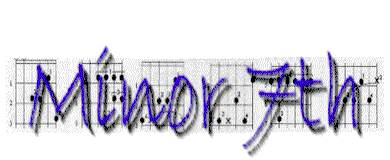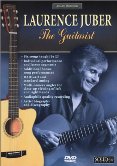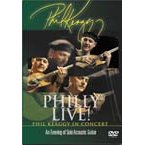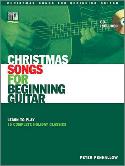

November/December, 2006
Laurence Juber, "I've Got the World on Six Strings," Solid Air Records SACD 2060, 2006
An accomplished composer in his own right, Laurence Juber has recently gained much attention for his fine
interpretations of Beatles and Paul McCartney's music. Here he focuses on the music of an earlier era, arranging
and playing some of Harold Arlen's most well-known tunes. This music is structured quite differently than pop music
from the 60s and 70s, yet that poses no problem for Juber. Although he included jazzy voicings in "Rules of the Road"
and in a number of other originals and covers, here he digs in and offers a bluesier, more soulful listening
experience than just about anything he's done previously. He typically plays at least two variations on each
verse and bridge, changing tempos, reharmonizing, adding walking bass lines, tenths and tasty single string runs.
"I've Got the World on a String," "If I Only Had a Brain," and "It's only a Paper Moon" are mid-and uptempo
showcases for the octave runs, bass lines and other stylistic devices that Juber often employs. "The Man That
Got Away" is played with a bossa nova feel that propels the torch song in a completely new way. Some slower
tunes, such as "Stormy Weather," "Any Place I Hang My Hat is Home" and "Come Rain or Come Shine," display his
bluesy side to best advantage. Harold Arlen's chord progressions, strong melodies, and even the history of this
material combine to inspire and unleash Juber as nothing else has previously; while the performances certainly
retain his identifiable stamp, Laurence Juber has clearly achieved a new level of expression in this collection.
"I've Got the World on Six Strings" should please his existing audience, attract new listeners and challenge
steel-string fingerstyle guitarists to explore the music of Harold Arlen and his cohorts, including Cole Porter,
Hoagy Carmichael and George Gershwin, whose work comprise the Great American Songbook.
The Duhks, "Migrations," SUG-CD-4014, 2006
This Winnipeg-based quintet celebrates the joy and the
ache that accompanies leaving one's home base. Led by
Jessica Havey's smoky, sultry, soulful vocals, the
Duhks (pronounced the same as Huey, Dewey and Louie's
last name) make music like wunderkids on an aural
playground. Recorded in Nashville, "Migrations"
shimmers with Tim O'Brien and Gary Paczosa's pristine
production. These two are absolutely fearless in
transgressing musical boundaries (think Bela Fleck and
the Flecktones as a starting point). Eclectic,
surprising, delightful and maddening, "Migrations"
evolves into as interesting a collection to go from
headphones to these ears in some time. Group members
penned a few of these 11 tunes, but most were selected
from a wide array of sources. Havey positively kills
with the heart-wrenching Irish folk ballad "Who Will
Take My Place," totally nails Tracy Chapman's
soul-folk of "Mountains O' Things," and mesmerizes
with the traditional gospel of "Moses Don't Get Lost."
Bandleader Leonard Podolak contributes some ringing
banjo, Scott Senior's percussion propels throughout,
Jordan McConnell's steady on guitar, and Tanya
Elizabeth revs it up on fiddle. While the predominant
sound leans toward Irish (with the fiddle admittedly a
bit on the heavy-handed end of the spectrum), the
Duhks ably take on and interweave blues, jam,
bluegrass, traditional folk, cajun, gospel, folk and
soul. The resultant shifting soundscape provides ample
pleasure for those willing to sample this heady
palette. Few dull moments here, and I am guessing even
fewer during their stage show. Quick note on the name:
Podolak, so the story goes, had a previous band called
Scruj MacDuhk, whose name played off the Disney
character Scrooge McDuck, as well as some Scottish
history.
The Duhks' Website Buy it at Amazon.com
Alex Houghton, "More Love," 888-AH04, 2006
Canadian guitarist Alex Houghton's fourth offering, "More Love," is a collection of ten passionate finger-styled
instrumentals. A relative new comer to the guitar, Houghton did not take up the instrument seriously until her
early twenties. Making up for lost time she fervently studied composition from Carlton and the Ottawa Universities,
developing a remarkable proficiency on her instrument. For "More Love," the artist uses a variety of musicians to
form rich musical landscapes, resulting in an alluring tapestry of gorgeous tone poems. Houghton has an
extraordinary gift for composition. The scope of her musical influences is expansive, ranging from folk,
classical, jazz and modern. The strength of this recording lies in her innate ability to creatively integrate
these diverse styles into cohesive musical narratives. For the opener, "For Harriet," lush strings accentuate
the beautiful melody of this tender ballad. On the jazz inspired "Wynn's Bounce," Kevin Turcotte's supportive
trumpet adds interesting melodic textures, while the guitarist eloquently swings with her working rhythm section.
Perhaps the most ambitious performance on this recording is the dramatic "Toxicodendron," where Houghton explores
minimalist motifs reminiscent of the seminal works of German composer, Steve Reich. The closing solo piece and
title tract, "More Love," is an eloquent and introspective ballad, highlighting Houghton's rich musical and
emotional vocabulary. "More Love" is an album of exceptional instrumental compositions, all brilliantly conceived
and performed, and is highly recommended for any fan of beautiful music.
Phil Keaggy & Mike Pachelli, "Two of Us," Solid Air Records SACD 2061, 2006
"Synergy" was the title of Phil Keaggy's second album as the leader of the 1970s rock band Glass Harp. He would have
done well to save that title for this, his first acoustic guitar duet CD with longtime friend Mike Pachelli. Keaggy
and Pachelli individually are gifted guitarists, but on "Two of Us" there is a true synergy which lifts their playing, a
telepathic give-and-take which sounds as if their improvisational interplay was meticulously composed in advance.
Pachelli describes the duets as "an improvisational stream of consciousness" -- that metaphor especially rings true
on "Westside Talkin'," a piece of jazz conversation which sees the fleet-fingered duo trading free-form licks,
pleasing perhaps even to Coltrane fans. But that is the only foray into avant-gardism on this disc. "Old Friends"
is totally improvised and beautifully wistful, unfolding confidently like a story though the ending is, in fact,
unknown even to the writers. Many of the tunes do rely on arrangement rather than improv as on "County Down
Revisited," a remake of a song from Keaggy's Dove-Award winning CD "Beyond Nature." "Two of Us" is reminiscent
of that landmark recording and is some of the best instrumental acoustic work that Keaggy has ever done. Keaggy
and Pachelli have tapped into the power of synergy, and we as listeners luckily get to reap the benefit.
Phil Keaggy's Website | Mike Pachelli's Website Buy it at Acoustic Music Resource
David "Goody" Goodrich, "Dust of Many Horses," TSP0003, 2006
When the term "Americana" is tossed around most music fans immediately conjure thoughts of Lucinda Williams,
Willie, and Steve Earle. Yet in the instrumental music realm a few others come to mind, most notably Charlie
Haden (Iowa) and Pat Metheny (Missouri) both of whom inject country flavored melodies, themes, and atmospherics
into their work (and incidentally, have recorded together on many occasions). Guitarist Dave Goodrich is easily
in their class throughout the cerebral and cinematic "Dust of Many Horses." With guitars, banjo, kalimba, loops
and tape at his disposal, Goodrich has amassed a painterly song cycle that recalls such ECM artists as Metheny,
John Abercrombie, and many of the Paul Motian trio works. Goodrich's minimalist melodies are most infectious on
"Part I" and "Part II" of the title track wherein the guitarist's Tex-Mex motifs are phrased more like a horn
than a six-string. "Part II" rocks a bit more and the tempo brightens, especially when abetted with a few well
timed baritone guitar lines which define the song structure. Guitarist Peter Mulvey guests on the sleepy ballad
"After The Rain," a John Coltrane composition, which sounds just as the title implies by way of its legato
melodies and laid-back accompaniment (not the sort of arrangement you would expect from 'Trane, though Goodrich
does harness the jazz icon's spirituality). Not one to shy away from a grunge makeover, the re-working of
Nirvana's "Come As You Are" skillfully transforms the anthemic arena rocker into a menacing dirge as Goodrich
blearily plucks out Cobain's pained vocal melody atop a somnambulistic series of repetitive chord changes,
fluid upper register runs, and keeps that haunting bass-line in tact from the original. The sole vocal track
features singer/cellist Kris Delmhorst breaking into a cracking falsetto-yodel high above the wash one note
pedal tones and Goodrich's combination of slide and frenetic double-tracked arpeggios which sound as if he was
playing a harp. "Yet Again" boasts a dirty electric guitar ala Mick Taylor as heard in the Stones' Exile days.
You won't find a better solo guitar record than "Dust."
David Goodrich's Website Buy it at Amazon.com
Jean Synodinos, "Breathe," Fortunate Records FR022, 2006
If I lived in Austin I'd never be home. I'd live at the bars and coffeehouses, savoring the rich musical food that
is the center of this city. Jean is one of the musicians providing the feast and girl howdy, there's nothing like
that smoky voice with just a hint of grit like yeah, she's been there and done it and done it. And hot damn, those
songs! There's nothing predictable about these tasty songs of love and regret with the occasional odd character,
fueled with her rhythmic acoustic guitar and rootsy arrangements. It's not folk. Exactly. More like sultry alt-country,
low on the twang please, with pop and jazz too. "Yes is the sexiest word," she sings in "Yes (AM)" and "Yes
(PM)" and baby, you better believe it. You can hardly hear the little bit of country flavored electric guitar because
it's all pushed by the thwap of a snare, a booming bass, and that voice. She downshifts with "Breathe," a finger
picked ballad in waltz time. In "Drop My End of the Bone" she's angry, a bad ass electric guitar underlining the
mood. I wonder if "Misfits on Parade" was actually written in the coffeehouse where she describes the odd
characters, one of them her, who deeply misses someone. The creative tumble of lyrics has urgency like it was
scribbled on a napkin. "Houses of the Holy" has a kickin' funk guitar part while "Leave My Mark" features a
cool jazzy electric.
Lee Westwood, "To Sleep," 2006
Composer/guitarist Lee Westwood counts among his musical influences Pierre Bensusan, Ralph Towner, Michael Hedges,
Tommy Emmanuel, Django Reinhardt, Sergei Rachmaninov, Debussy, Tool, Bjork, and Sonny Rollins. His main outlet is
performing solo steel-string guitar in DADGAD tuning in an aggressive, dense style. Phillipe Barnes adds flute on
several pieces in a manner reminiscent of Tony Roberts' playing on John Renbourn's "The Black Balloon." Westwood is
prodigiously talented and able to create musical landscapes that are abstract, yet always energetic. This very
intensity renders the title of the CD something of a puzzle, since his music is full of contrasting dynamics,
string snapping, insistent rhythms and strong melodies. "A Star Above the Arctic Circle" quickly became a favorite,
as it features a slower, somewhat jazzy introduction. "Calamity" follows and is a great, bluesy piece -- imagine a
hybrid of Bert Jansch and Peter Finger and you'll get some idea of its feel. "Reels" begins with a Celtic aura, but
soon moves into jazzy syncopation under swirling guitar and flute lines. Adam Oehlers' illustrations on the insert
for "Music for Children" and "Dear Little Emmie" yield no obvious insight into the corresponding tunes, which are
too complex to evoke childhood, yet Westwood's music is no less compelling for it. "Hell is Full of Angels" presents
a possible resolution to the unsettled quality of the music on one hand and the titles and accompanying drawings on
the other; he may purposely intend to convey a loss of innocence and its accompanying confusion. This puzzle persists
through the end of the CD, but, to the patient listener, Westwood's music is captivating. This disc rewards repeated
listening and will hold special interest for guitarists who compose and perform their own instrumentals.
Stephen Bennett, "Reflections", Cimirron/Rainbird Records C/RR-040-CD, 2006
It would be no stretch to say that Stephen Bennett is one of the seminal guitar players of our generation. Equally
at home flatpicking, fingerpicking, or crafting intricate melodies on any variety of harp guitars, Bennett has just
turned 50; we can only hope the next 50 years sound as nice as what we've heard so far. In this latest collection
of songs, "Reflections", Bennett again weaves a lustrous tapestry of aural textures, sometimes going solo, sometimes
overdubbing with loops underneath (like on the sweetly melancholic "One Day"). Some songs are gentle and airy
("Long Forgotten Chambers of the Heart", "Reverie"), some are jaunty ("Cherry Blossom Time", "Theme for An
Imaginary Game Show"), and some are ballsy ("W.M.D.", dedicated to President Bush, and played on a National
steel guitar, and "Varus Has a Bad Day", played in dropped-C tuning). For those who have been listening to
Bennett's music for some time, "The Moon Tonight" brings together several of his signature elements: a strong
melody, tapping, and clean fingerpicking. "Katude" shows why Bennett is a staple of the Chet Atkins Appreciation
Society (C.A.A.S.) festival very year; man, that thumb is groovin'! He picks up the flatpick and knocks out
"Dance of the Fireflies" and "The Breasts of the World", showing that he is no one-trick pony. The disc ends with
"Jonathan", written for the family of a young man (a fan of his music) killed in Florida, in which Bennett's song
"Perestroika" is loosely inserted into the middle. In the agony of death, Stephen Bennett reveals the power of
life through music.
Stephen Bennett's Website Buy it at Amazon.com
Lizanne Knott, "Under the Burning Sky," 2006
Lizanne Knott’s confident, cool delivery will remind you of Rickie Lee Jones. Producer Glen Barratt places Knott’s
voice in settings exquisitely calibrated to serve each song, provide variety, and showcase her songwriting range.
Knott’s sophomore release is very much a collaboration between producer and performer (also man and wife).
Barratt consistently makes Knott’s search for hope in a hopeless world lovely. There’s topnotch help from
Barratt regulars like Joel Bryant on keys (gorgeously lush in "Waited") and Jef Lee Johnson (effectively
filling the spaces on anything with strings). The title track -- a template for the album’s arrangements and a
thematic touchstone -- opens. It’s a nightmare vision -- tuneful and pretty -- of an apocalyptic world that might be
the world of today. This stark tale begins strikingly. Johnson’s quietly menacing electric arpeggios open in
a brief call and response with other instruments that will eventually flow in and out of the tune. Knott
enters, accompanied by acoustic guitar and a hushed rhythm section. Each sing-along chorus builds a little
more. Knott relieves the story’s tension with a prayer ("God in his forgiving grace will undivide this human
race"), a bridge chanted against ominous bass and drums. "Seven Stars," voiced by a seeker "high on coffee and
religion," features an overlay of rap in a search for salvation in the face of the Katrina tragedy. But this CD
offers much more: the country/pop ache of "Shadow in This Town" and a New Orleans style tune ("This Always Will Be")
with Philly’s songwriting elder statesman, Phil Roy, channeling his inner Doctor John. "Salutation" is a
delightfully sly wink about missing the person you needed a break from, with soulful vocal fills from Erik
Mitchell. In the last two tracks, the syncopated "Easier" and the folkie closing track "Angels" ("I know if
there are angels, they will forgive us") there’s redemption. Knott finds some hope in children and the
possibility of divine intervention. You will find some in this glorious record.
Lizanne Knott's Website Buy it at Amazon.com
San Francisco Guitar Quartet, "Silhouette," 2006
One of the major dilemmas faced by classical musicians today is whether or not to create CDs that feature great
historical compositions or to focus on new, often times relatively unknown, repertoire. In the San Francisco
Guitar Quartet's recent release entitled "Silhouette", they have chosen to do the latter, selecting only pieces
that were composed within the last two decades. The works all together are a success because the SFGQ were
careful to choose music that has an immediate appeal to the listener. Not only are all of the works composed
in a listener-friendly, extended tonal style, the musicians also included compositions by two major guitar
composers: Leo Brouwer and Carlo Domeniconi. This disc is made even more attractive by the fact that four
of the seven pieces included are World Premier Recordings. The SFGQ performs the various works beautifully,
making full use of their broad dynamic range and remarkable accuracy. The guitarists prove their ensemble
capabilities during several works that require them to navigate long sequences of harmonics and pizzicatos,
something that is rarely done well on two guitars, let alone on four! With ensembles being an integral part
of many academic guitar programs around the world today, the need for guitar quartet music is ever growing.
This disc helps to meet this demand by bringing to the forefront several brilliant new compositions.
San Francisco Guitar Quartet's Website Buy it at Amazon.com
Various Artists, "Christmas Treasures," Autumn Records, 2006
Ever since Nat King Cole's "The Christmas Song" and Bing Crosby's "White Christmas," each yearly crop of Christmas
compilations have held a mirror to our changing American culture while at the same time remaining paradoxically
steadfast with tradition. It wasn't long ago that guitar-themed Christmas albums were a rarity -- now they're not
only customary, but protean in the styles they embrace, from Celtic to classical to jazz. "Christmas Treasures"
leans a little toward the latter, with a contemporary bent. It features eight of today's leading Christian
guitarists (Phil Keaggy, Mark Baldwin, Dave Cleveland, Bruce Gaitsch, Tom Hemby, Michael Hodge, Matt McPherson,
Michael Ripoll), all performing on McPherson acoustic guitars.
Their combined resumés are impressive, guitarists for the likes of Whitney Houston, Amy Grant, Peter Cetera,
Faith Hill, Sawyer Brown and Patti LaBelle. "Christmas Treasures" is testament to the fact that crossing this
much talent with an exceptional instrument simply results in a very good CD. This is no raw fingerstyle recording,
but instead highly produced for mass appeal with strings and chorus on many tracks. Too often that translates into
a cloying combination, but the production on Tom Hemby's "Christmas Time is Here" and Mark Baldwin's "O Come, O
Come Emmanuel" is especially tasteful, even moving. Here finally is a stocking-stuffer that your favorite picker
will enjoy.
©
Alan Fark
Autumn Records' Website Buy it at Amazon.com
©
Patrick Ragains
Buy it at Acoustic Music Resource
Listen to "I've Got the World on a String" (mp3)

©
Fred Kraus
Listen to "Mountains o' Things" (mp3)
©
James Scott
Buy it here
Listen to "Wynn's Bounce" (mp3)
Listen to Alex Houghton at our podcast 
©
Alan Fark
Listen to "Bear's Den Road" (mp3)
©
Tom Semioli
Listen to "Triple Divide" (mp3)
Listen to David "Goody" Goodrich at our podcast 
©
Jamie Anderson
Buy it at Amazon.com
Listen to "Breathe" (mp3)
©
Patrick Ragains
Buy it here
Listen to "Calamity" (mp3)
Listen to Lee Westwood at our podcast 
©
Kirk Albrecht
Listen to "Cherry Blossom Time" (mp3)
©
David Kleiner
Listen to Under the Burning Sky (mp3)
©
Timothy Smith
Listen to "Toccata-Fanfare" (mp3)
Listen to "Christmas Time is Here" (mp3)


 (Click on image below to buy) |
 DVD: Laurence Juber - "The Guitarist" |
 DVD: Phil Keaggy Live in Philly |
 Christmas Songs for Beginning Guitar |